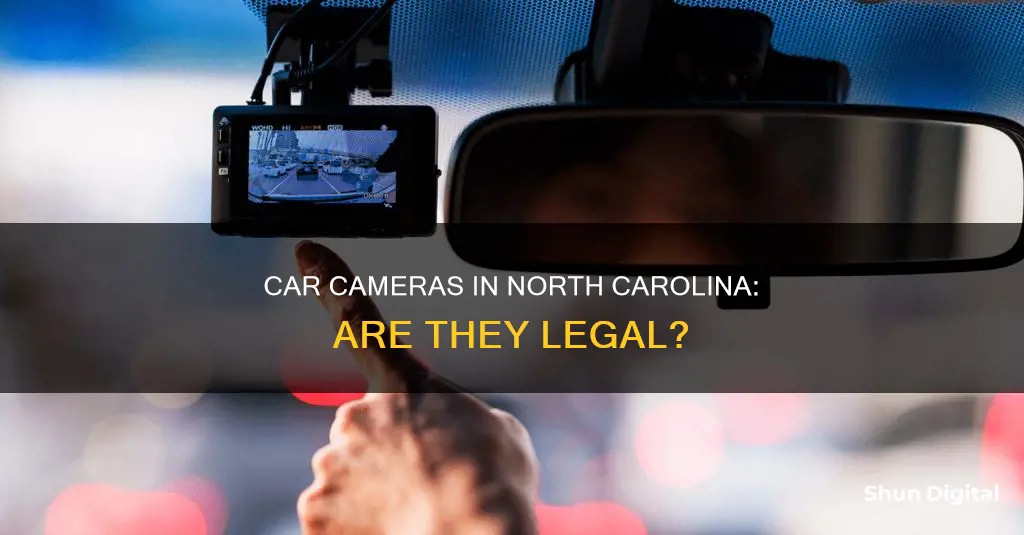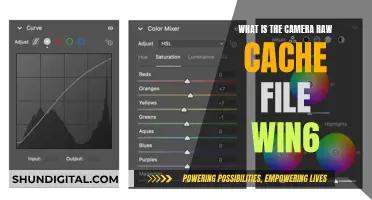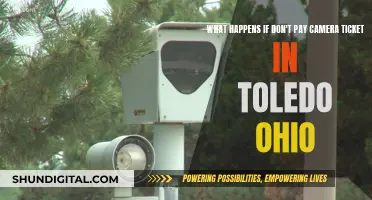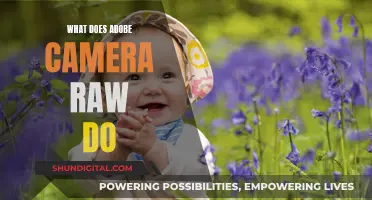
In North Carolina, it is legal to have a dashcam in your car. In fact, law enforcement officers and trucking companies have been using dashcams for quite some time. However, there are no state or federal laws regulating their use. When installing a dashcam, it is important to mount it in a safe place that does not obstruct your view of the road. Additionally, while you generally have the right to record in public spaces, you are not allowed to record on private property without permission.
North Carolina is a one-party consent state, which means that you may record a conversation without the other party's consent as long as you are part of the conversation. However, audio recording from a dashcam is not permitted if you are not part of the conversation being recorded. Dashcam footage can be used as evidence in court and during negotiations with insurance companies, but it is important to note that it can be used against you if it shows any irresponsible actions on your part prior to an accident.
| Characteristics | Values |
|---|---|
| Legality of dashcams in North Carolina | Legal |
| Legality of audio recording in North Carolina | Legal, as long as one person who is part of the conversation is aware |
| Legality of video recording in public spaces in North Carolina | Legal |
| Legality of video recording on private property in North Carolina | Illegal |
What You'll Learn
- Dashcams are legal in North Carolina but must be mounted in a safe place that doesn't obstruct the driver's view
- Dashcam footage can be used as evidence in court but can also be used against the driver
- North Carolina is a one-party consent state, meaning you can record audio without the other party's consent if you are part of the conversation
- Dashcams should be regularly maintained to ensure they are working when needed
- Dashcams can be useful for parents of new drivers to better supervise their children

Dashcams are legal in North Carolina but must be mounted in a safe place that doesn't obstruct the driver's view
Dashcams are small video cameras that can be mounted on your dashboard or windshield. They record what happens in front of your vehicle and are useful in providing evidence in the event of an accident. In North Carolina, it is legal to have a dashcam installed in your vehicle. However, there are a few important things to keep in mind:
Firstly, when installing a dashcam, ensure that it is mounted in a safe place that does not obstruct your view of the road. This is crucial for your safety and to avoid any legal issues.
Secondly, while North Carolina is a one-party consent state, which means you can record conversations if you are a party to them without the need for consent from others, be mindful of audio recording. If you are not part of a conversation happening inside or near your vehicle, you must obtain permission from those involved before recording audio.
Additionally, while dashcams can be valuable in proving fault in an accident, they can also work against you by recording your actions prior to the incident. They may capture your rates of acceleration and deceleration, as well as audio from inside the car, which could be used by the other party to argue that your actions contributed to the accident.
Lastly, remember to regularly maintain your dashcam to ensure it is functioning properly when needed. Familiarize yourself with its charging requirements and data storage procedures to avoid losing crucial footage in the event of an accident.
HDR Mode: Moto G Camera's Dynamic Range Boost
You may want to see also

Dashcam footage can be used as evidence in court but can also be used against the driver
Dashcams are becoming increasingly popular as technology advances. They are small cameras that can be mounted on your dashboard or windshield and record what happens in front of your vehicle. While they can be useful in proving fault in an accident, it's important to remember that they can also work against you by showing your actions prior to the incident.
In the state of North Carolina, dashcams are legal. Many trucking companies and law enforcement officers have been using them for a long time. However, there are no specific state or federal laws regulating their use. If you choose to install a dashcam, it's important to mount it in a safe place that doesn't obstruct your view. Additionally, when it comes to recording audio, North Carolina is a one-party consent state, meaning that as long as one person in the conversation is aware of the recording, it's legal.
Dashcam footage can be used as evidence in court and during insurance negotiations. It can help prove fault in an accident and absolve you from any false accusations. However, it's important to remember that the footage can also be used against you if it shows any irresponsible actions on your part, such as speeding or loud music. In some cases, the quality of the video may be compromised due to weather conditions or lighting, affecting its usefulness in your case.
If you're involved in an accident, the police may seize your dashcam as part of their investigation. It's important to contact an experienced car accident attorney to ensure your rights are protected and the camera was obtained legally. They can also help you gather footage from other vehicles involved in the accident.
While dashcam footage can be valuable in determining fault and negotiating with insurance companies, it's important to weigh the benefits against the potential drawbacks. Dashcams record your movements and can capture audio, which could be used against you. Additionally, it's crucial to maintain your dashcam and ensure it's charged and functioning properly when you need it most.
Surveillance Cameras: Effective Crime Prevention for Businesses?
You may want to see also

North Carolina is a one-party consent state, meaning you can record audio without the other party's consent if you are part of the conversation
North Carolina is a one-party consent state, meaning that only one party in a conversation needs to consent to the recording of audio. If you are part of the conversation, you can record without the other party's consent. This is within your rights under North Carolina's wiretapping law.
However, it is important to note that this only applies if you are a party to the conversation. If you are not, and you record without the consent of at least one party, you are committing a crime.
For example, if you set up a recording device in a bedroom to record your spouse speaking with someone else, you have not committed a crime as you have consented to the recording. But, if you record your spouse speaking with someone else in a public place, and you are not part of the conversation, you have committed a crime as neither party consented to the recording.
It is also worth noting that while you generally have the right to record in public spaces, you are not usually allowed to record on private property. Places like shopping malls and grocery stores are considered private property.
Surveillance Cameras: A Reflection of Our Modern Society
You may want to see also

Dashcams should be regularly maintained to ensure they are working when needed
Dashcams are a great way to protect yourself in the event of an accident, but they need to be regularly maintained to ensure they're working when you need them. Here are some tips to keep your dashcam in top condition:
Key Features to Maintain:
- Lens: Use a microfiber cloth to gently clean the lens, ensuring it's free from dust and debris. Avoid harsh chemicals that could damage the lens. Replace the lens if you notice any scratches.
- Memory Card: Use a high-quality, compatible memory card and format it regularly. Replace the card if you encounter any errors or issues.
- Power Source: Connect your dashcam to a stable power source, such as your car's cigarette lighter or USB port. Regularly check the power cable for damage or fraying.
Routine Dash Cam Checks:
- Lens Cleaning: Use a microfiber cloth or lens cleaning solution to gently wipe the lens in a circular motion. Avoid abrasive materials and harsh chemicals.
- Memory Card Management: Regularly check and manage the storage capacity of your memory card by formatting it or transferring footage to another device.
- Battery: If your dashcam has a built-in battery, check the battery level regularly and charge as needed. Otherwise, ensure the power source is connected properly.
Software and Firmware Updates:
Check for updates at least once a month and follow the manufacturer's instructions for installation. Some dashcams have automatic update features that can be enabled.
Troubleshooting Common Issues:
- If your dashcam isn't turning on, check the power source and cable connection. Try plugging it into a different power outlet in your car.
- For recording issues, check the memory card insertion and space available. Adjust recording settings if necessary and enable loop recording.
Connectivity Concerns:
- Ensure your dashcam is properly connected to your computer or mobile device using the correct cable. Restart both devices if necessary.
- Check the dashcam's settings to ensure it's in the correct mode for transferring files.
Professional Maintenance and Repairs:
If you're not confident in maintaining or repairing your dashcam, seek professional assistance from the manufacturer or authorized repair centers. Provide the make, model, and a detailed description of the issue.
Long-Term Care and Storage:
- When not in use, remove the dashcam from your vehicle and store it in a cool, dry place away from extreme temperatures and moisture.
- Follow the manufacturer's instructions for proper removal and storage, including disconnecting the power source and removing the memory card.
By following these maintenance tips, you can ensure your dashcam is always ready to capture important footage and provide clear evidence when needed.
The Evolution of Camera Obscura: Ancient Origins to Modernity
You may want to see also

Dashcams can be useful for parents of new drivers to better supervise their children
Dashcams can be incredibly useful for parents of new drivers, helping them to better supervise their children. The cameras can be mounted on the dashboard or windshield and record what happens in front of the vehicle. They can be set up to turn on when the car is in gear or when an impact force is detected.
The benefits of dashcams for parents of new drivers are numerous. Firstly, they can help to prove fault in an accident, providing unbiased evidence of what happened. This can be invaluable in determining fault and holding the guilty party responsible, as well as absolving the new driver from any false accusations.
Secondly, dashcams can promote safer driving habits. Knowing that their actions are being recorded can make new drivers more mindful of their behaviour on the road. Dashcams can also help parents hold their children accountable and ensure they are following the rules, such as not texting and driving or speeding.
Additionally, dashcams can provide peace of mind for parents. They can rest assured that their teen driver is being protected from false accident claims, insurance fraud, theft, and vandalism. The footage from the dashcam can also help parents better supervise their children by providing a record of their driving habits, allowing for open and constructive discussions about road safety.
Furthermore, some dashcam models offer advanced features such as GPS tracking, cloud storage, and two-way communication. These features can provide parents with real-time updates on their child's location, speed, and driving behaviour.
While dashcams offer many advantages, it is important to consider potential drawbacks. Dashcam footage can also work against the new driver if it shows any irresponsible actions or distractions that may have contributed to an accident. Additionally, the quality of the footage may be compromised in unfavourable weather conditions or low-light settings.
In conclusion, dashcams can be a valuable tool for parents of new drivers, offering supervision, accountability, and peace of mind. However, it is essential to weigh the benefits against potential drawbacks and choose a dashcam model that best suits the family's needs.
Speeding Ticket Cameras: How Fast Before Getting Snapped?
You may want to see also
Frequently asked questions
Yes, it is legal to have a car camera in North Carolina. There are no state or federal laws prohibiting their use. However, you must ensure that the camera is mounted in a safe place that does not obstruct your view of the road.
Yes, car camera footage can be used as evidence in court and during negotiations with insurance companies. It can help prove fault in an accident and provide an unbiased account of what happened. However, it is important to note that the footage can also work against you if it shows any irresponsible actions on your part before the accident.
Car camera footage can be invaluable when trying to determine fault in an accident, especially in North Carolina, where the burden of proof falls on the victim to prove the other driver's negligence or recklessness. It can also help you be more accountable when driving, as knowing that your moves are being recorded can make you more mindful of your behaviour on the road.
One drawback is that car cameras can record your movements and rates of acceleration and deceleration, which could be used against you by the other party in an accident. Additionally, car camera technology may not always capture clear footage, especially in unfavourable weather conditions or low-light settings.







